Buhari: FG earned $547m from 5G spectrum auction
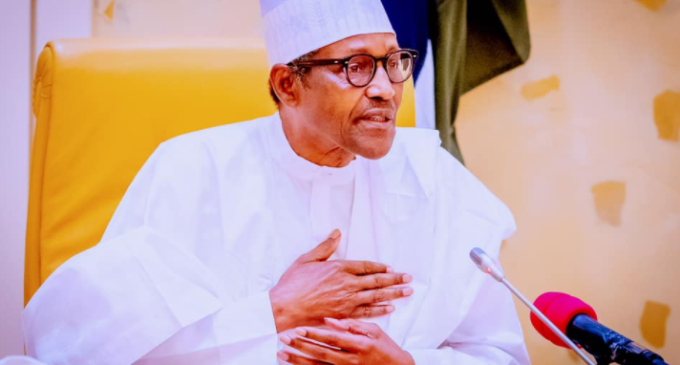
President Muhammadu Buhari says the auctioning of the fifth generation (5G) spectrum generated over $547 million into the federal government coffers.
Buhari disclosed this on Tuesday while inaugurating the national shared services centre (NSSC) in Abuja.
The NSSC is a one-stop shop for ministries, departments, and agencies (MDAs) to interface with citizens; and also houses a cybersecurity operations centre, network centre, and call centre.
Speaking at the inauguration, Buhari said, aside from the revenue generated from the auctioning, the 5G spectrum an additional fueling option for funding development.
He also applauded the contributions of the digital sector in driving growth, creating employment, and generating revenue for the country.
On NSSC, Buhari said the facility would provide services that are “swift, secure, and seamless’’.
He added that the information, communication, and technology sector (ICT) had accelerated the diversification of the economy and contributed an unprecedented 18.44 percent to the gross domestic product (GDP), close to three times the 6.33 percent contribution of the oil sector in the second quarter of 2022.
HIGHLIGHTS OF DIGITAL ECONOMY INITIATIVES
Buhari further applauded the efforts made by the ministry of communications and the digital economy, and expressed delight at the unveiling and inauguration of a number of initiatives, which according to him had “further expressed the government’s commitment to developing a sustainable digital economy in Nigeria”.
“These initiatives are part of our administration’s efforts to position the digital economy as a key enabler for the diversification of our economy and as a catalyst for the transformation of every sector of our economy,” he said.
“You will recall that I unveiled and launched the national digital economy policy and strategy for a digital Nigeria on November 28, 2019, and I am very proud of the giant strides and the unprecedented progress that we have made in less than one year since the unveiling.
“To ensure that the digital economy sector remains successful and in order to reduce the burden on citizens, I recently approved the suspension of the proposed excise duty in the telecoms sector, as any initiative that will lead to hardship for the citizens would not be pursued.”
“We approved the national policy on virtual engagements for federal public institutions on October 14, 2020 and this enabled us to formalise government online meetings. As such, statutory meetings like the federal executive council meetings, council of state meetings, and other meetings can now take place online, effectively, and legally.
“Our administration’s commitment to data promotion and privacy is receiving praise across the world and we have increased our digital identity enrolments from 39 million in October 2020 to about 92 million today.
“The massive increase of about 63 million in about two years is a global success story and has led to several requests for partnership from countries within and outside Africa. I also approved the establishment of the Nigeria Data Protection Bureau on the 4th of February, 2022 to provide an institutional framework for data protection in Nigeria, in line with global best practices.”
Buhari also said the digital economy ensured continuity in governance during the restrictions that came into force as a result of the COVID-19 pandemic, adding that several policies and programmes to enhance the productivity of the digital economy sector had been developed.
“For example, national policy on NIN-SIM integration has enhanced the integrity of the national identification number (NIN) database. Similarly, the Nigerian Postal Service has been repositioned through the unbundling of its services to increase its efficiency and make it more viable as a revenue-generating agency of government.
“The two subsidiaries are the Property and Development Company and the Transport & Logistics Company. As part of the NDEPS I approved the 24th of October as ‘digital Nigeria day’. I am delighted that the maiden digital Nigeria international conference and exhibitions commenced on October 24, 2022. I am confident that the outcome of the conference, as noted in the communique, will support the growth of the digital economy sector.
“I signed the Nigeria startup bill into law on of October 2022. The Nigeria startup act is a landmark legislation of this administration to transform the pool of highly talented youth we have in Nigeria into a pool of highly innovative digital entrepreneurs. We aim to make Nigeria a global hub for digital talent. It was an executive bill that was initiated by the honourable minister of communications and digital economy.
On his part, Isa Pantami, minister of communications and digital economy, appreciated the president for his support for the digital economy, with turnovers in broadband/internet penetration, skills acquisition for global competitiveness, and infrastructure development, like the fibre optic cable, which was about 15,000kms in 2015, and increased to more than 60,000kms.
According to Pantami, there had been 2,255 interventions and programmes in the higher institutions of learning, secondary schools, and some private schools, and the quarterly revenue from ICT rose from N51 billion to N418 billion, while some prominent institutions like the Massachusetts Institute of Technology, United States, has shown interest in researching the pace of growth in the sector.





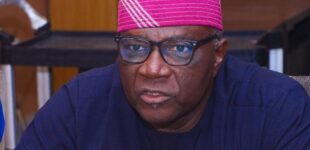
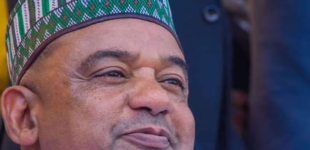



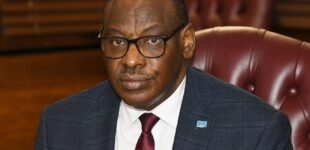


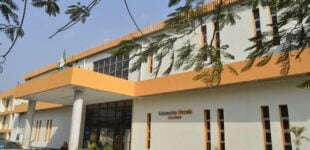

There are no comments at the moment, do you want to add one?
Write a comment